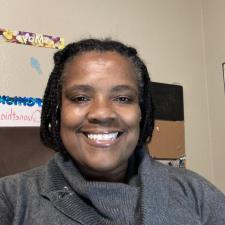Hannah A. answered • 04/18/25
A Mom Who Loves Kids and Helping Kids Find Joy in Learning
You can always learn something new!
As we age, the study of phonics evolves into what we often call word study. While young learners focus on the basics of letter-sound correspondence, older students and adults dive into more complex language patterns, rules, and exceptions. Word study goes beyond just sounds and looks at how words are structured, analyzing roots, prefixes, and suffixes to understand the meaning and function of words more deeply.
For example, rather than just sounding out a word like "unhappiness," older learners would break it down into "un-" (a prefix meaning "not"), "happy" (the root word), and "-ness" (a suffix turning an adjective into a noun). Word study also focuses on spelling patterns, such as understanding why certain vowel combinations appear in specific words or how rules like “i before e, except after c” are applied—and when exceptions occur. This approach helps learners not only with spelling but also with reading comprehension, vocabulary expansion, and overall literacy skills.
In short, word study encourages a deeper, more systematic understanding of how language works, which is beneficial at any age!
Hannah A. answered • 04/18/25
A Mom Who Loves Kids and Helping Kids Find Joy in Learning
You can always learn something new!
Chiamaka S. answered • 04/10/25
There is certainly no age limitation for the study of phonetics

Anonymous A. answered • 07/27/25
26 years of elementary experience
It’s never too late to learn phonics!
The structured literacy program I use is designed to support students from kindergarten through high school—and beyond. If a student is missing foundational skills, I always start at the beginning of the program, no matter their age or grade level.
Why? Because you don’t know what you don’t know. Gaps in phonics and decoding can impact reading confidence and comprehension, and the only way forward is to build a strong foundation first.
This approach works beautifully for struggling readers, older students, and even adults. It’s respectful, effective, and completely tailored to each learner’s needs—helping them gain skills they may have missed and finally feel successful in reading.
I would love to help your child. My background is in early childhood and primary education, specifically Pre-K through 3rd grade.Using the program I use, I could work with a little bit older student!
Please contact me! email: [email protected]

Michele W. answered • 06/30/25
Experienced Certified Teacher in USA/Tutor Givens Proven Results!
Phonics, decoding, and encoding skills are essential for all age levels because they form the foundation of reading and writing success. Here's why they matter—whether you're in kindergarten or high school:
Phonics, decoding, and encoding aren’t just for beginners—they’re building blocks that support lifelong learning across all subjects. Students who master them read with greater ease, spell with confidence, and write with clarity.
Need help strengthening these skills at any level? 📖 A tutor can provide targeted support that makes a big difference!
Hi! I’m Michele, a certified educator with over 30 years of teaching and tutoring experience and a updated literacy license I have studies the latest scientific research on of the science or reading and writing. . I specialize in helping students from Pre-K to 8th grade build strong literacy foundations through engaging, personalized instruction. Whether your child is just beginning to read or needs help closing gaps, I offer expert guidance in phonics, decoding, and spelling skills that truly make a difference. Let’s work together to help your child thrive! ✨📘 Send me a message today to schedule a free consultation so we can work out the details! Or book your first lesson with instant booking.

MARCUS J. answered • 06/06/25
MATESOL, with 8 years of teaching experience in higher ed. and K-12
There's no age limit! Decades of research show that there really is asystematic way in which people learn to read which applies across age groups. Though, of course, one should tailor their approach to teaching these skills based on the stage of literacy development one's learner is in. As well as recognizing that in our age, our learning style strays away from the more "absorbent" style of a child (that children actually learn this way is still highly debatable, and I am very much in the camp that it's not true), to the more metacognitive style of a fully developed brain.
You are also quite astute in recognizing word study, phonic is only a strand of the science of reading (word study). Usually it's quite heavily focused on with younger learners, though a more hollistic approach is really recommended. I work with many struggling readers who are adults or high school students, and phonics instruction as well as syntax, reading comprehension, and other literacy skills are all very much needed at their level.

Ms.Quanethia R. answered • 06/05/25
Licensed Reading, Science, LA, SocialStudies & Math Elementary Teacher
You pose a simple; yet, great question. To many times I have witnessed children being bullied in schools because of this stigma (phonics is only for Pre-Kinder & Kinder). When in fact, thousands of ESL adults must begin instructions on a Pre-K level. Also, there are many American adults who struggle to read. As one poster mentioned, phonetic awareness breaks down every aspect of a single word (even the way you place your teeth, tongue and lips).
Get a free answer to a quick problem.
Most questions answered within 4 hours.
Choose an expert and meet online. No packages or subscriptions, pay only for the time you need.